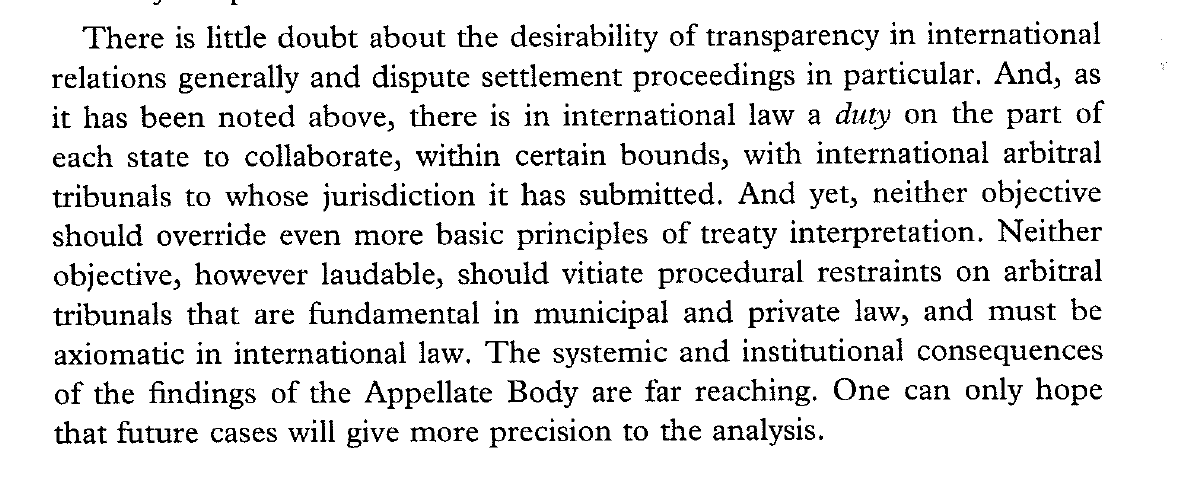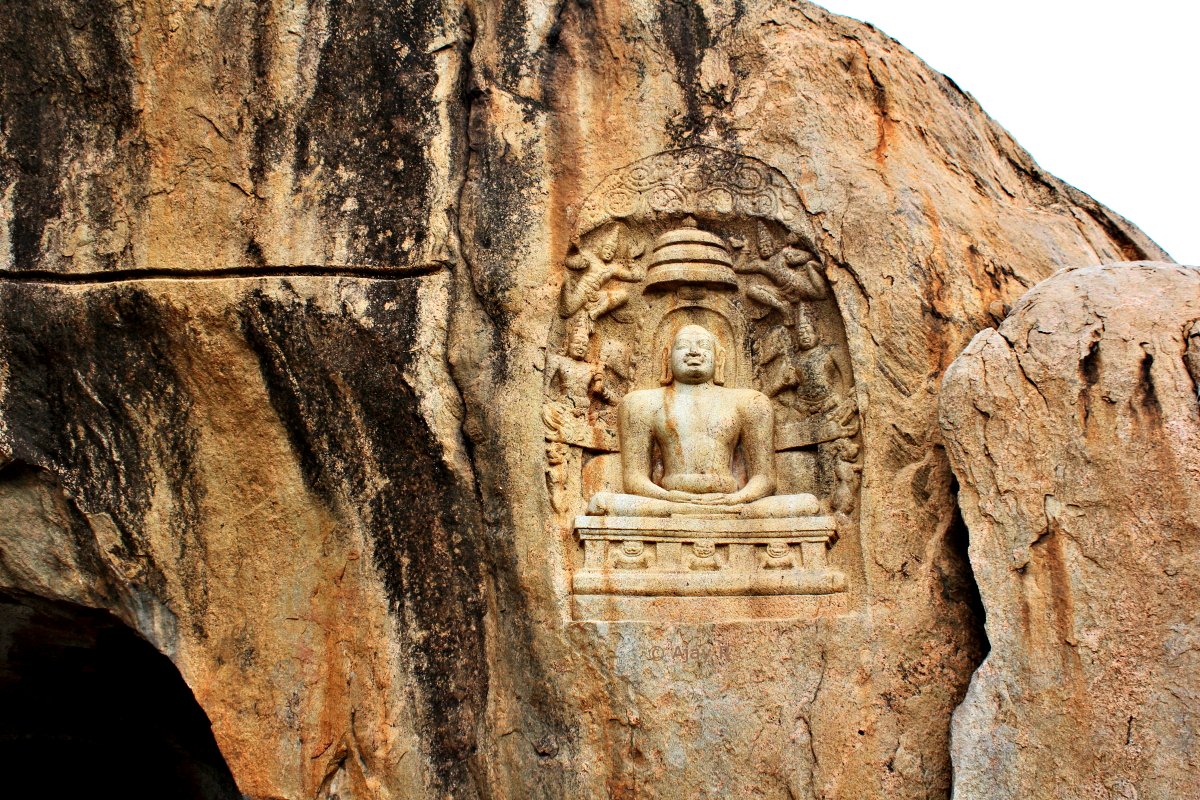I'm not sure why the paper begins with "three". For me - and under the DSU - the magic number would have been four: this is the threshold below which the AB can't rotate and is therefore noncompliance with 17.1. 2/
We know the legal status of an *appealed* panel report: the DSB may not adopt it until there is an Appellate Body report (or the appeal is withdrawn). this is perfectly predictable, hence workarounds proposed (and already agreed). 3/


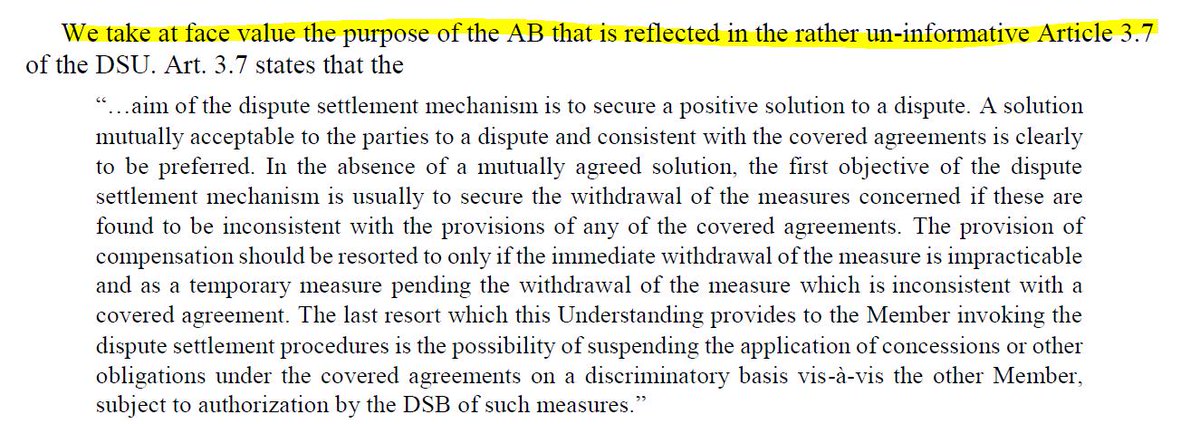


The first observation was somewhat challenging. The observation about standard of review is correct of course, but incomplete and thus questionable. 6/


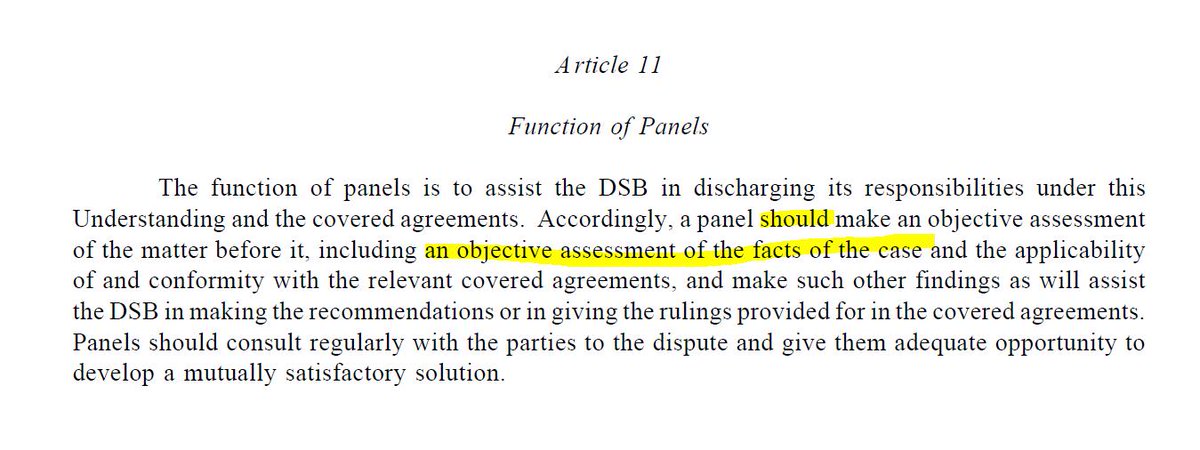
Article 3.7 does not say much on this because ... other provisions do. And because international agreements do not always set out judicial commonplaces that are the bedrock of institutions they create: the DSU makes no mention of due process either. 9/

a) I am not at all sure why the authors consider that mediation is relegated to a "second order option": it comes right after Consultations and before Establishment of Panels.
b) "ex aequo et bono" because its better for compromise? 10/


In what way does it help to bring "property" and "liability" concepts to explain WTO dispute settlement - where the *agreed* framework is compliance? 11/



Here, I confess that I found the analysis impoverished in at least two ways.
First, "agreed text and function" of an adjudicative organ is a good starting point, but it is only that. 13/

a) The reading out of Article 17.6(ii) was a huge interpretive and political problem independently of zeroing.
b) The "mischaracterization" of fact as law not in the abstract, but rather, 16/

c) The US has repeatedly expressed concern that the AB addresses issues that are not necessary for the resolution of the dispute before it.
d) The deadline issue ... see the thread. 17/
Rather, of concern is their exposition of "precedent". 18/


No one is arguing that the AB, or panels, should reinvent the interpretive wheel in each report, or meander around like a loose cannon. 19/

But from there to the type of ritual recitation of its own past wisdom in the guise of "precedential consistency" is a significant juridical step. 20/
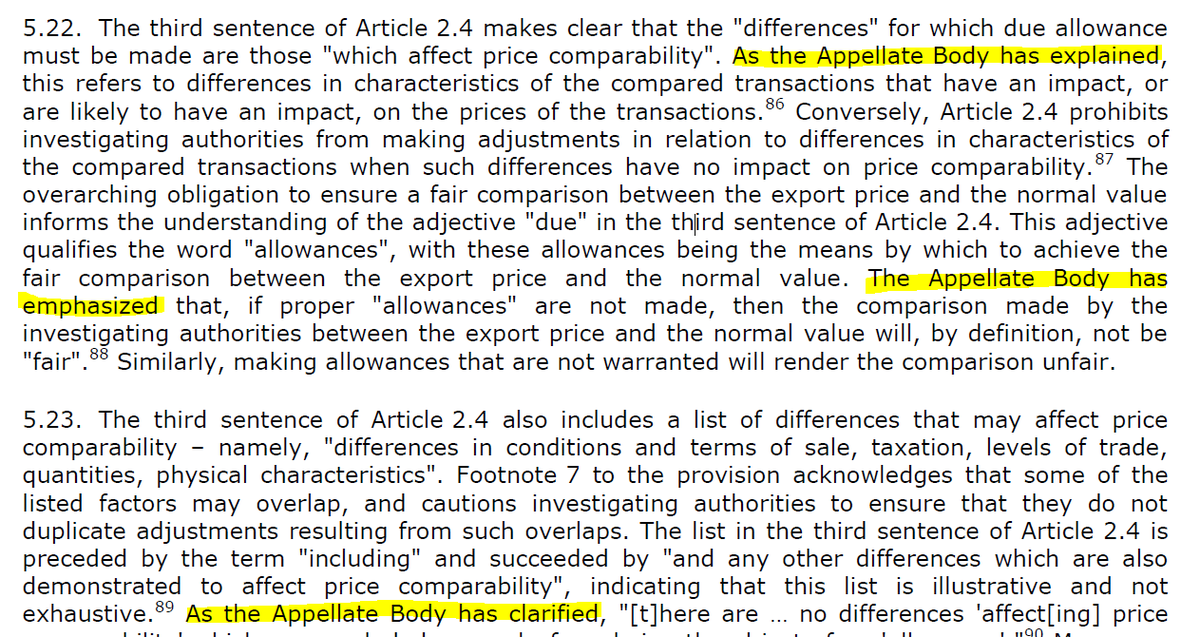
*This* is the crux of the problem of precedent in WTO jurisprudence. I have not done the research, but has there been an instance where the AB has tacked *and explained why*? 22/

One of the richest litigation experiences I had was arguing before Mr. Ehlermann in the late 90s; since then, it has been an honour for me to count him he has been a friend and mentor. He was indeed prescient.
But it was not a "remote possibility." 23/


